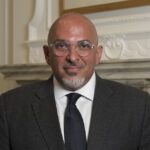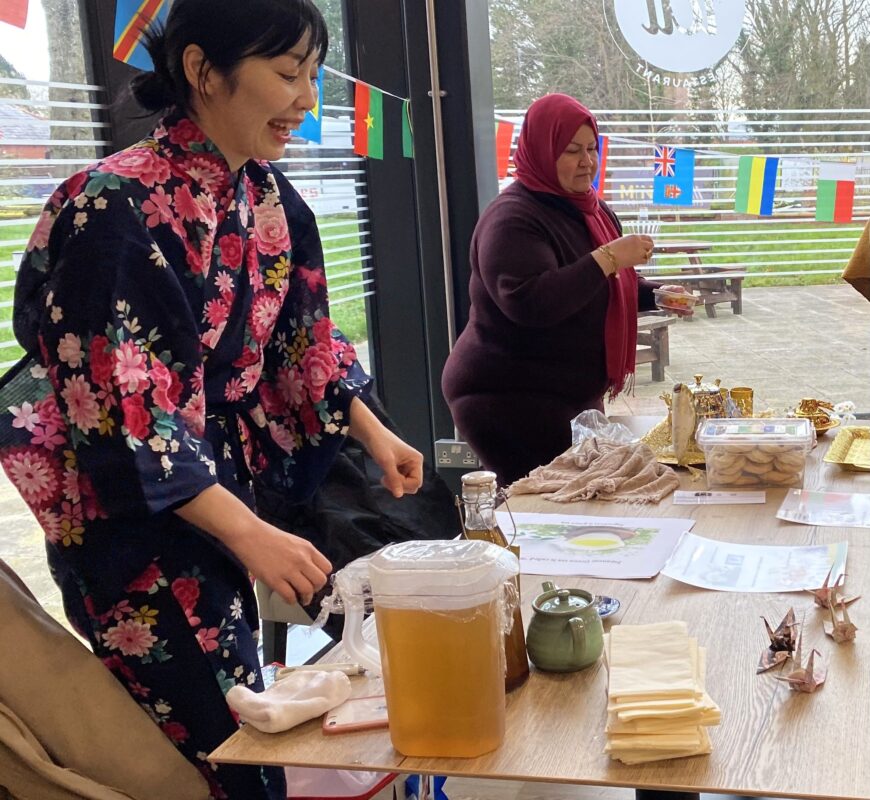Extra support to safeguard political impartiality in schools

New guidance to support teachers in tackling sensitive issues in the classroom in a politically impartial way is being published today, Thursday 17 February.
The new guidance applies to all schools, including academies and independent schools, but not early years settings, 16-19 academies, further education colleges or universities.
- Guidance to help teachers tackle sensitive issues in a politically impartial way
- Brings clarity on meeting legal duties when discussing issues such as Israeli-Palestinian conflict
- Provides framework for dialogue between heads and school communities for rare occasions where concerns arise
Teaching about political issues and the differing views on these is an essential part of the curriculum, helping pupils to form their own opinions and prepare them for later life.
The new guidance will help teachers and schools navigate issues such as the Israeli-Palestinian conflict, the legacy of the British Empire or societal responses to racism in accordance with the law, which states that teachers must not promote partisan political views and should offer a balanced overview of opposing views when political issues are taught.
It follows commitments made last year to develop specific guidance on this issue.
Practical examples include:
- When teaching about the decriminalisation of homosexuality in the UK, teachers should not present discriminatory opposing beliefs held at the time in an uncritical manner or as acceptable in our society today;
- Teachers should not present opposing views to the fundamental underpinnings to our society, like freedom of speech and protection from violence and criminal activity;
- When teaching about racism, teachers should be clear that it has no place in our society – but should avoid advocating for specific organisations that have widely contested aims or views;
- When teaching younger students about historical figures with contested legacies, it may be advisable to focus on what these figures are most renowned for and factual information about them, if teachers think pupils may not be able understand the contested aspects of their lives, beliefs and actions;
- Schools might invite local political figures, including MPs, councillors, or former pupils involved in politics, to talk to pupils, which can be balanced by inviting a range of people with differing views, or by teaching directly about other candidates and political parties; and
- Following a complaint, it becomes clear that during a lesson a teacher suggested to pupils that it is an objective fact that the political system of a certain country is the ‘fairest’ and ‘best’ in the world. A proportionate response may be to ask the teacher to clarify during their next lesson that this was their own personal political view.

Education Secretary Nadhim Zahawi said:
“I know one of the reasons many teachers feel so passionate about the profession is the remarkable role they play in young people’s lives, helping them understand more about themselves and their views of the world.
“I don’t want there to be any barriers – real or perceived – to teachers’ vital work in this space, which is why I am reinforcing that no subject is off-limits in the classroom, as long as it is treated in an age-appropriate way, with sensitivity and respect, and without promoting contested theories as fact.
“Clearer guidance on political impartiality is just one part of my wider work to give children the best possible education as the government continues to prioritise skills, schools and families, to enable young people to reach the full height of their potential.”

Geoff Barton, General Secretary of the Association of School and College Leaders, said:
“It has never been more important to facilitate and encourage discussions about political and contemporaneous issues as it is now. Young people are exposed to a swirl of misinformation online, and an increasingly toxic discourse on social media as well as in political debate among those who should know better. Schools have a vital role in providing a safe space in which young people can examine and understand controversial issues.
“The vast majority of teachers are very good at managing these discussions in a way that is balanced and impartial. We welcome anything which helps them to navigate this difficult territory. However, we are keen that this should not be over-prescriptive as it could have the unintended consequence of deterring open discussions. We will be studying the guidance carefully to understand its implications.”

Dr Mary Bousted, Joint General Secretary of the National Education Union, said:
“There is absolutely no need for new guidance on how to appropriately handle political and social subjects in schools. Very good guidance already exists and this is followed up and down the country. It has always been the case that educators take their responsibilities for teaching in these areas seriously and carry it out with considerable thought.
“We note Nadhim Zahawi’s intention that he ‘does not seek to limit the range of political issues that schools can and do teach about’. But in practice his guidance will have the opposite effect. Political Impartiality in Schools does not so much clarify existing guidance as add new layers of mystification and complexity to it. This could induce such a level of uncertainty and caution in schools about ‘political issues’ that they are less likely to engage with them.
“The losers in the Department for Education’s 34-page game of obfuscation about what is and is not a ‘political’ issue will be the students who are denied the opportunity to engage with the most challenging issues of our time. The warning lights that the government is flashing around climate change, racism, world poverty and the legacy of empire as topics of exploration are more likely to decrease students’ engagement with learning than to stimulate it.”

Commenting on the new guidance issued by the Department for Education, Paul Whiteman, general secretary of school leaders’ union, NAHT said:
“Engaging with political issues is a vital element of pupil’s education and learning, helping them to understand and explore different views and develop their own judgements and opinions.
“The vast majority of schools fully meet their legal responsibilities on political impartiality, which relies on the professional expertise and judgement of school leaders and teachers, and we are pleased this new non-statutory guidance recognises that. Schools are already highly skilled in this area and take the need for political impartiality extremely seriously.
“Schools must be enabled to feel confident in approaching political, sensitive or controversial issues in the classroom and this guidance should offer clarity and support where that is needed. There remains a risk that it could create unnecessary anxiety or fear about tackling these issues and we must ensure that does not come to fruition.”
Chief Executive of Star Academies Sir Hamid Patel CBE said:
“Schools play a crucial role in equipping pupils with the skills and knowledge to debate topical issues in an informed way.
“This guidance provides helpful clarification on securing impartiality, with examples that will support teachers in their decision making about the curriculum and its delivery.”
Chief Executive of Outwood Grange Academies Trust Martyn Oliver said:
“The requirement for schools to act with political impartiality has existed for many years and the vast majority of schools manage this with great sensitivity and expertise.
“This guidance is a welcome addition to these duties placed on schools as it provides practical examples and will help school leaders consider political neutrality in their curriculum design.
“The guidance does not seek to limit what schools can and should teach to children but helps them when faced with teaching contested events and navigating ‘fake news’ and clashing opinions and truths.”
In the rare cases where parents or carers have concerns about teaching of politically contentious issues, the guidance will provide a plain English reference point for discussions with head teachers, helping resolve issues more quickly and easily.
The guidance makes clear that in identifying political issues, teachers should be mindful that they sometimes do not relate directly to government policy, for example a campaign for a business to boycott trade with a certain country.
It also clarifies the requirement for teachers to make a ‘balanced presentation of opposing views’ on political issues does not mean that pupils must be taught about an opposite view to every view which is covered, or that different views must be given equal time in teaching or that those views cannot be critically assessed.
The new guidance is expected to provide reassurance to the vast majority of schools that they are already meeting the legal requirements in place.












Responses